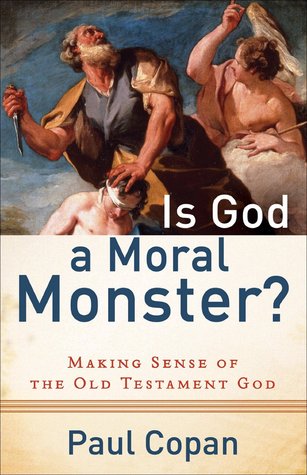More on this book
Community
Kindle Notes & Highlights
by
Paul Copan
Read between
December 31, 2015 - February 10, 2017
The people of God are no longer national, ethnic Israel, whose homeland is in the Middle East. As the New Testament makes clear, the interethnic Christian community is the true circumcision in Christ whose citizenship is heavenly and who stand in a new relation to the Mosaic law.
The call to worship means inclusion in the life of God.
I think we delight to praise what we enjoy because the praise not merely expresses but completes the enjoyment; it is appointed consummation.7
Because humans are made in God’s image, it’s not a contradiction for God to become human; after all, what makes us human is derived from God’s nature in the first place.
A marriage without the potential for jealousy when an intruder threatens isn’t much of a marriage.
When the word jealous describes God in Scripture, it’s in the context of idolatry and false worship.
Yet anger is often the first indication that we care. The tragedy is that we’re not angered, not shocked enough.
The Theme of the Pentateuch: Abraham’s Faith and Moses’s Unbelief
Biblical scholars have pointed out that the theme of faith holds the Pentateuch (Genesis–Deuteronomy) together at its seams.4 The two major players are Abraham and Moses. Abraham is the positive example of faith, while Moses is the negative example.
“Any Israelite who heard this story would take it to mean that his race owed its existence to the mercy of God and its prosperity to the obedience of their ancestor.”
Scottish theologian Thomas Torrance was willing to go so far as to say that “God loves us more than he loves himself.”
Rather than thinking of the crucifixion as the absence of God—with the darkening skies and the cry of dereliction (“My God, My God, why have you forsaken Me?”)— this is actually the moment when God’s presence is most evident. God shows himself in the crucifixion through a palpable darkness, an earthquake, and the tearing of the temple curtain in two. (Compare this event with the darkening skies, thundering, and God’s voice at Mount Sinai.) God’s great moment in history comes when all seems lost, when God seems defeated. God’s glory is revealed in God’s self-humiliation.
the crucifixion was no act of divine child abuse. It was the history-defining event in which God gave his very self for humanity’s sake.
As we move from Old Testament to New Testament, from national Israel to an interethnic Israel (the church), we see a shift from a covenant designed for a nation—with its own civil laws and judicial system—to a new arrangement for God’s people scattered throughout the nations of the world and whose citizenship is a heavenly one.
Indeed, 1 Corinthians 10 refers to the “ungrateful and mutinous” children of Israel who are full of stubbornness and treachery. They end up serving as vivid negative examples, and we should avoid imitating them.
We can reject the notion that “if it’s in the Bible, it must have God’s seal of approval.”
Much in the Old Testament visibly reminds us of God’s abundant grace despite human sin and fall-damaged social structures.
God’s actions in history shaped his people’s identity as God’s covenant people;
God’s reign should affect all of life. God’s presence permeates and saturates our world.
imitated the action of God, who limited himself to Israel from among the nations, choosing them as the means of blessing the world.
Holiness wasn’t merely a matter of eating and drinking but a life devoted to God in every area.
Genesis 1:26–27 affirms that all human beings are God’s image-bearers. This doctrine serves as the basis for affirming the dignity and rights of every human.
by nature humans are worshipers; they’re slaves to what they worship,
The Scriptures reveal a God who works through messy, seemingly inefficient processes—including human choices and failures (Gen. 50:20)—to accomplish his redemptive purposes in history.
Yet he reminds his people that he suffers with them and doesn’t forsake them (Matt. 25:40; Acts 9:4).
We’ve gotten rid of the God who presents a cosmic authority problem and substituted controllable gods of our own devising.
If we take God seriously, he will most certainly mess up our lives, make us uncomfortable, and even disorient us.
Some critics argue that because God commands the killing of the Canaanites (a specific action in a specific historical context for a specific theological purpose), then we can generalize: “action X is always permissible.” And, of course, if you allow this, then terrorism becomes permissible in the name of whatever authority: “Allah said it; I believe it; that settles it!”


